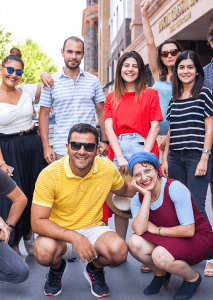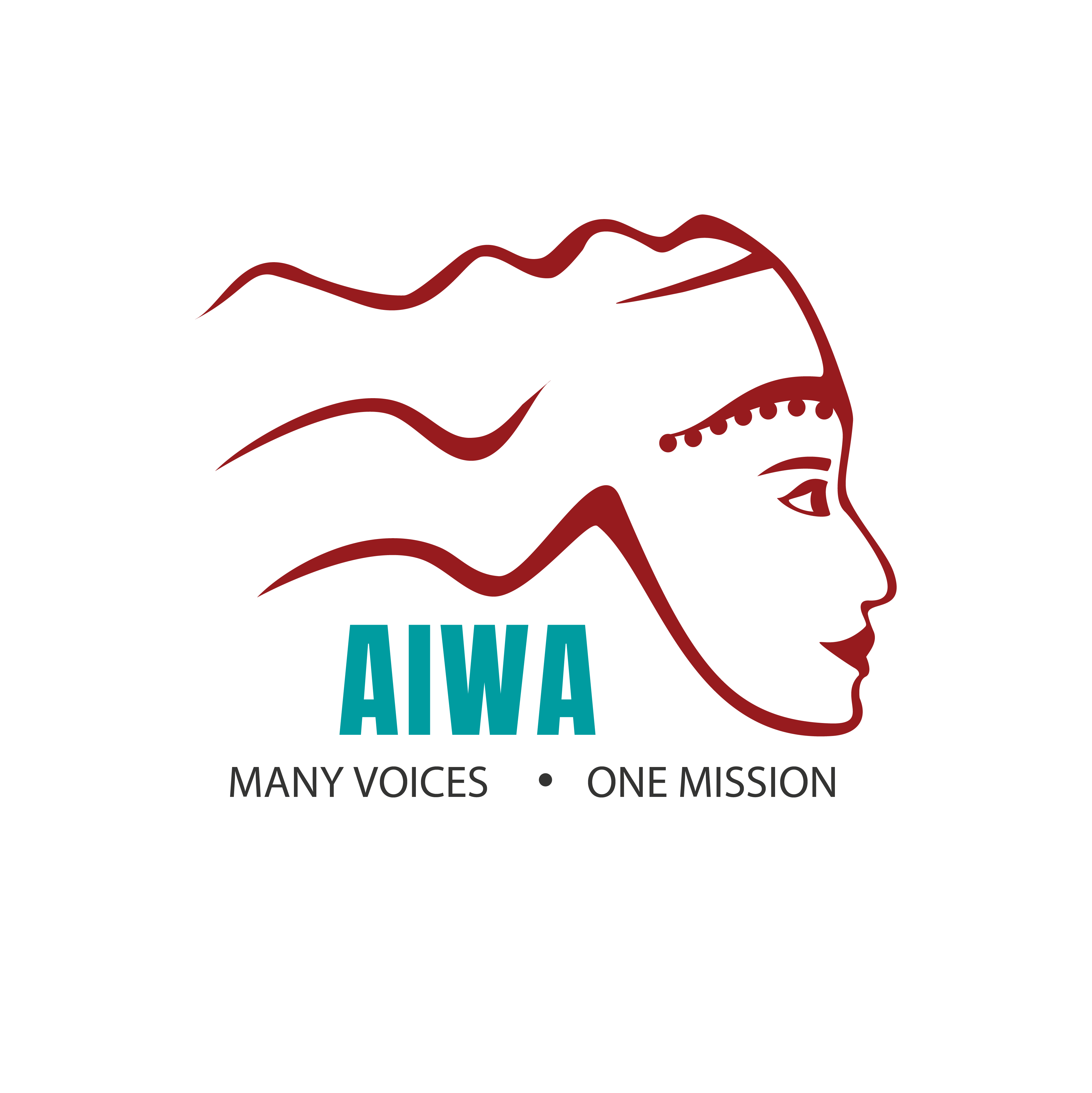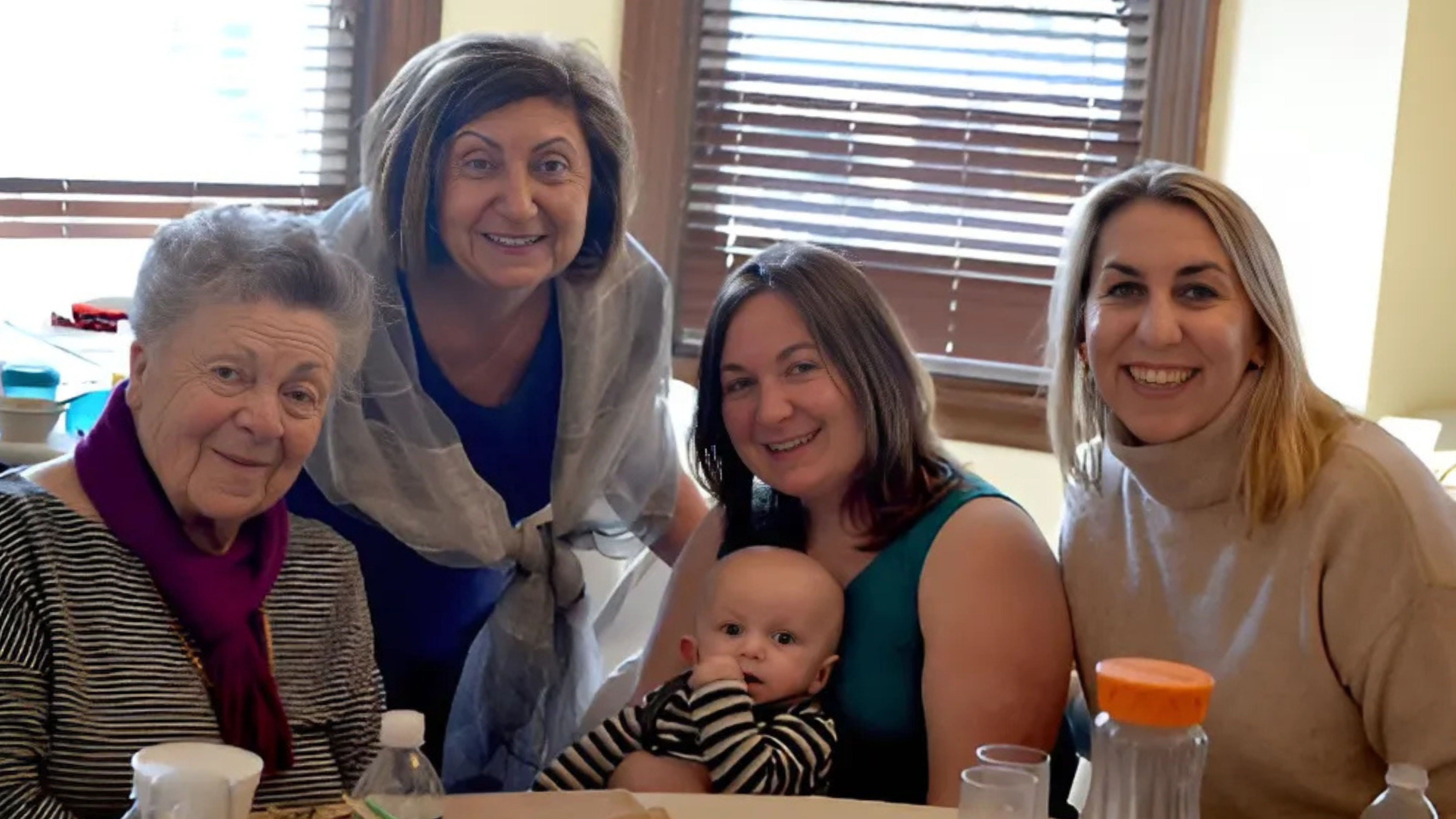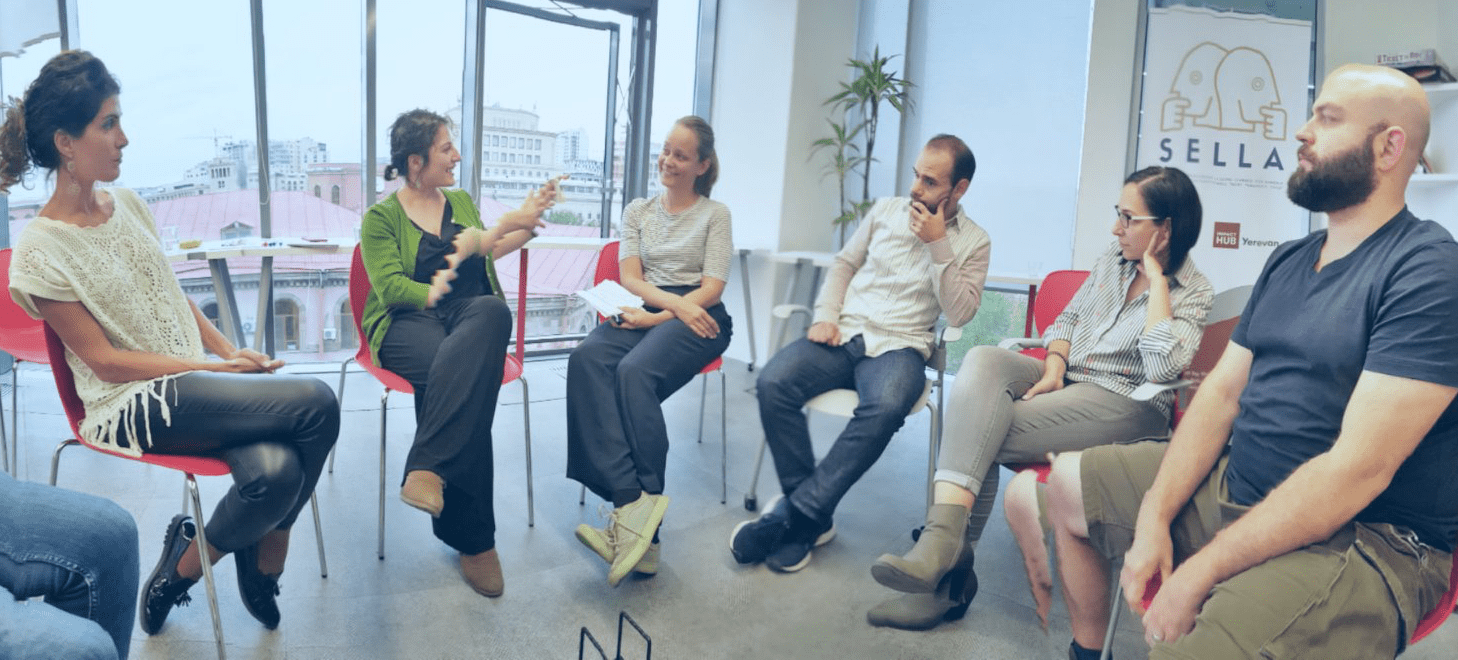
Mané likes to call herself a human experience designer since whether it is in designing more human experience in hospitals, playing the accordion for her family, consulting organizations to augment their impact through story and narrative methodologies, or dancing; they are all instances that invite more humanity, and hence freedom.
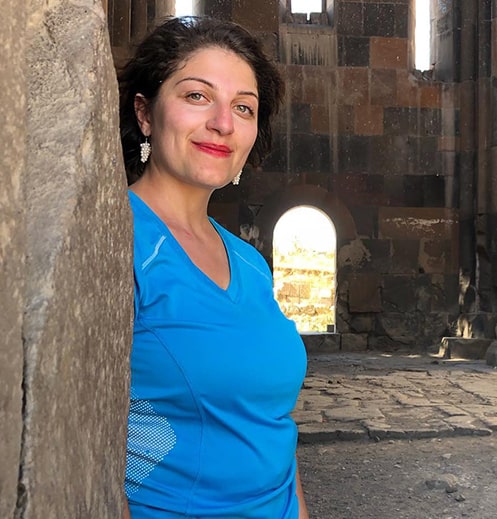
She was born in Armenia and remembers fondly climbing on top of the stacked garages, her grandma’s clan coming together and sleeping cuddled on the floor. When she was eight, she moved to America with her family; only knowing the words cat, dog, hi, and bye, she walked into the 1st grade classroom and said “hello.” One of the boys in amazement exclaimed, “She can speak!” she wasn’t sure what they were expecting from the new Armenian girl, however, she did begin to listen much more than she spoke.
It was in college at Cornell University, where Mané interacted with people who were both local and from around the world, and realized that the myths that she was told, that our value in life is how much money and success we have, that to be happy we need to mindlessly consume, that if you work hard you’ll have the American dream, were leading to material gains and more work hours, but not necessarily more joy or good for the planet.
These myths were shown plainly when Mané did theater and co-created life stories with men in a maximum security prison in New York. She met Mark Thompson, who despite having spent 40 years in prison, remained one of the most kind and joyful people Mané had ever met. He had been traumatized before going to prison and retraumatized inside and yet had found God, mentored younger men, and found freedom through magic. “I realized that the same society that needs mindless consumers and workers also needs people in prison to increase profit, the same society that says we are a land of opportunity gives no second chances to those who would be the most impactful and deserving,” mentioned Mané.
“What, where, and why you do things doesn’t have to make sense to others, only to you,” Mané went on to say. “Our culture has become so focused on planning things out, looking for rules, that it neglects the heart. When I went into prisons, my family said, why not go somewhere safer? When I chose my design major, some people asked, why not law? When I was moving to Armenia, many asked, why don’t you stay in the US and have more opportunities? I didn’t have a plan, but I followed my heart, went to Armenia, stretched out my arms and belonging, family, and opportunities fell into my hands. In Armenia, I have grown both professionally and personally in the ways that I needed most, in one of the more human places I have known because I turned off making sense and turned on sensing.”
Mané believes that you won’t really be able to say yes if you haven’t learned how to say no. Through the help of her friends and her therapist in Armenia, she has realized that it was hard for her to say no to uncomfortable things because she was afraid of hurting others’ feelings, a recent example being her landlord trying to set her up with his son. Mané believes that Armenian women are socialized to be the “good Armenian girl”, look after the needs of others and not their own, and in order to grow in saying no, we need a community we feel loved and safe around to practice and grow with.
When discussing fear and anxieties for the future, Mané mentions that her greatest fear as an Enneagram 2, “is that I am unworthy of being loved. Rejection cuts to my heart in ways that other things may not. Globally though, I fear the awful impacts that climate change and bad policies will continue to have on people with less privilege, yet I am not at all hopeless because of this fear but continue to change my habits, build relationships, and spread the word.”
Mané closes with these words of hope for the future, “I really hope that anyone who interacts with me will become more free, both on an institutional level but especially on the individual. It could be through them living in a more human culture, being more connected to their ‘why’ through story, dancing joyfully, or experiencing music.
